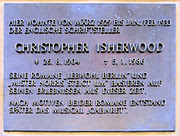A Subaltern's Love SongMiss J.Hunter Dunn, Miss J.Hunter Dunn, Furnish'd and burnish'd by Aldershot sun, What strenuous singles we played after tea, We in the tournament - you against me! Love-thirty, love-forty, oh! weakness of joy, The speed of a swallow, the grace of a boy, With carefullest carelessness, gaily you won, I am weak from your loveliness, Joan Hunter Dunn Miss Joan Hunter Dunn, Miss Joan Hunter Dunn, How mad I am, sad I am, glad that you won, The warm-handled racket is back in its press, But my shock-headed victor, she loves me no less. Her father's euonymus shines as we walk, And swing past the summer-house, buried in talk, And cool the verandah that welcomes us in To the six-o'clock news and a lime-juice and gin. The scent of the conifers, sound of the bath, The view from my bedroom of moss-dappled path, As I struggle with double-end evening tie, For we dance at the Golf Club, my victor and I. On the floor of her bedroom lie blazer and shorts, And the cream-coloured walls are be-trophied with sports, And westering, questioning settles the sun, On your low-leaded window, Miss Joan Hunter Dunn. The Hillman is waiting, the light's in the hall, The pictures of Egypt are bright on the wall, My sweet, I am standing beside the oak stair And there on the landing's the light on your hair. By roads 'not adopted', by woodlanded ways, She drove to the club in the late summer haze, Into nine-o'clock Camberley, heavy with bells And mushroomy, pine-woody, evergreen smells. Miss Joan Hunter Dunn, Miss Joan Hunter Dunn, I can hear from the car park the dance has begun, Oh! Surry twilight! importunate band! Oh! strongly adorable tennis-girl's hand! Around us are Rovers and Austins afar, Above us the intimate roof of the car, And here on my right is the girl of my choice, With the tilt of her nose and the chime of her voice. And the scent of her wrap, and the words never said, And the ominous, ominous dancing ahead. We sat in the car park till twenty to one And now I'm engaged to Miss Joan Hunter Dunn. |
The other four finalists: "The Town Clerk's Views" - "Saint Cadoc" - Monody on the Death of a Platonist Bank Clerk" -- ah, now that I think of it, this would be my favorite, but I cannot find it online, and I long ago returned the book to the library -- and, lastly, "In Willesden Churchyard"
As a Poet Laureate, Betjeman had the right to be buried in Westminster Abbey; he chose instead to have just a memorial floor stone there; he's buried in the yard of St. Enodoc's, a "chapel of ease" he loved in Trebetherick, Cornwall.
St. Enodoc's has an interesting history. Some of it can be traced to the 12th century, but over the years it was nearly buried in the shifting dunes of sand. Restoration was accomplished in 1863-4. According to the record of a vicar's son, "the sands had blown higher than the eastern gable, the wet came in freely, the high pews were mouldy-green and worm-eaten and bats flew about, living in the belfry .... While the building was restored, the walls were partly rebuilt, on good foundations, the sand removed and the little churchyard cleared and fenced with a stout wall. The roof was renewed and new seats provided. It all cost about 650 pounds and I remember the pains and energy my father spent to raise the money. These works were done by the masons and workmen of the parish with loving care and nothing was destroyed needlessly or removed if it was of use or interest."
A "chapel of ease" is a small church within the area served by a larger parish church, and would be built so that those who cannot reach the larger church with ease would have a nearer-by place to stop and pray. I can't find the reference now, but I read somewhere that when St. Enodoc's was inundated in sand, locals would climb through the roof to get in to pray, for if it became abandoned of prayer the parish could end the stipend paid for its upkeep.
Betjeman wrote a poem about St. Enodoc:
Sunday Afternoon Service in St. Enodoc Church, Cornwall
Come on! Come on! This hillock hides the spire.
Now that one and now none. As winds about
The burnished path through lady's-finger, thyme,
And bright varieties of saxifrage,
So grows the tinny tenor faint or loud
All all things draw toward St. Enodoc.
Come on! Come on! and it is five to three.
Still, Come on! come on!
The tinny tenor. Hover-flies remain
More than a moment on a ragwort bunch,
And people's passing shadows don't disturb
Red Admirals basking with the wings apart.
A mile of sunny, empty sand away,
a mile of shallow pools and lugworm casts.
Safe, faint and surfy, laps the lowest tide.









